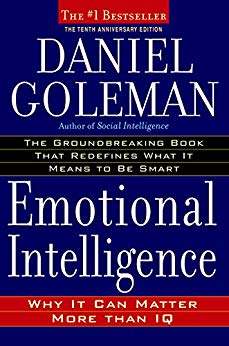

This article is an excerpt from the Shortform summary of "Emotional Intelligence" by Daniel Goleman. Shortform has the world's best summaries of books you should be reading.
Like this article? Sign up for a free trial here .
Marital success isn’t determined by how often a couple sleeps together, or opinions on how to raise children, or how each person handles finances–it’s determined by the skill with which a couple discusses disagreements in those categories. Agreeing on how to disagree is the key to a successful marriage.
Criticism and Contempt in Marriage
John Gottman, one of the foremost American scholars on marriage, found that harsh criticism is an early warning sign of a marriage in danger. When either party complains in a destructive manner, such as personal attacks on their spouse’s character, it’s a telltale sign that all is not well.
- In a healthy marriage, both parties are comfortable expressing complaints about actions the other person has taken. They identify the action and describe how it made them feel. “When you forgot to put gas in my car, it made me feel like you didn’t care about me.” They try to view a partner’s mistake as one made due to circumstances that can be changed–an action separate from their personhood.
- In an unhealthy marriage, one or both parties attack the personhood of the other, not the actions they take. The turn single actions into black and white statements on the other person’s character. “You forgot to put gas in my car. You always do that, you’re so selfish, you don’t care about anyone but yourself. Why do I ask you to do anything at all?” This makes the other person feel like they’re the problem, not that they made a mistake.
Repeated incidents of anger in a marriage often lead to contempt, which is one of the most detrimental feelings that can enter into a marriage.
- In one of Gottman’s studies, if one spouse exhibited a facial expression of contempt, the other spouse’s heart rate immediately increased.
- Continual contempt takes different tolls depending on who shows it:
- When husbands frequently show contempt, their wives are more likely to experience health problems–they’re prone to more frequent colds and flus, bladder and yeast infections, and gastrointestinal distress.
- When wives frequently show contempt, the marriage is likely to end within 4 years.
Criticism and contempt reflect that one spouse has made a negative mental judgment about their partner. The contemptuous spouse attacks, which causes their partner to become defensive or counterattack.
One defining factor of the toxic thoughts that lead to repeated displays of contempt is that they are absolutes: when a mistake is made, it isn’t merely a mistake that can be corrected next time, it’s proof that the person is horrible and that things won’t change. These toxic thoughts are often reflections of the spouse’s deepest emotional attitudes, and they are self-confirming and non-negotiable. Someone functioning in this way reads negative intent into every action their partner takes.
- For example, husbands who physically abuse their wives interpret even their wives’ most neutral actions as hostile, and use this misinterpretation to justify their violence.
———End of Preview———

Like what you just read? Read the rest of the world's best summary of Daniel Coleman's "Emotional Intelligence: Why It Can Matter More than IQ" at Shortform . Learn the book's critical concepts in 20 minutes or less .
Here's what you'll find in our full Emotional Intelligence summary :
- What are emotions? Why do we have them?
- What is emotional intelligence? Why is it important?
- How do you manage your own emotions? Anger, anxiety, and sadness?
- How can you approach your relationships with more emotional intelligence?
- How can you teach your children emotional intelligence?
- How can emotional intelligence boost your career?






